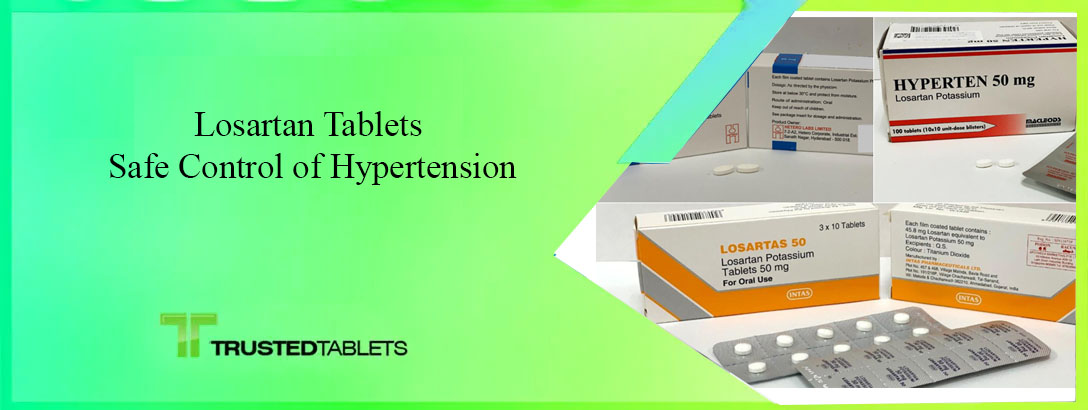Hypertension, commonly known as high blood pressure, is a chronic medical condition that affects millions worldwide. Often referred to as the “silent killer,” hypertension can lead to serious health complications if left unmanaged, including heart disease, stroke, and kidney failure. This article aims to shed light on Losartan tablets, a pharmacological intervention for the safe control of hypertension.
Understanding Hypertension
Hypertension occurs when the force at which blood is pumped by the heart against the artery walls is consistently too high. The long-term effects of this increased pressure can cause damage to the heart, brain, kidneys, and other organs. Risk factors for hypertension include age, obesity, family history, tobacco use, alcohol consumption, and poor diet.
Losartan: An Angiotensin II Receptor Blocker
Losartan is a member of the angiotensin receptor blockers (ARBs) class of medications used for treating hypertension. Losartan tablets work by blocking the action of angiotensin II, a hormone that narrows blood vessels and increases blood pressure. By inhibiting angiotensin II, Losartan helps to widen blood vessels, reduce blood pressure, and alleviate the strain on the heart and other organs.
Losartan Tablets: Dosage and Administration
Losartan tablets are available in different strengths (25 mg, 50 mg, and 100 mg). The dosage is typically determined by a healthcare provider based on the patient’s specific condition, age, and response to treatment. For most patients, the recommended initial dose is 50 mg once daily, taken with or without food. Dosages may be adjusted up to 100 mg daily if necessary.
Losartan Tablets: Safety and Side Effects
Losartan tablets are generally well-tolerated, but like all medications, they can cause side effects. Common side effects include dizziness, headache, and fatigue. More severe side effects such as fainting, chest pain, and irregular heartbeat may occur in rare cases. It is essential to inform healthcare providers about any suspected side effects for appropriate management.
Losartan Tablets: Interactions and Precautions
Patients taking Losartan tablets should inform their healthcare provider of all medications they are currently using, as some drug interactions may occur. Potential interactions include diuretics, lithium, non-steroidal anti-inflammatory drugs (NSAIDs), and potassium supplements or salt substitutes. Losartan tablets should be used cautiously in patients with kidney or liver disease, pregnancy, and breastfeeding.
Losartan tablets are an effective and safe treatment option for hypertension management. By blocking angiotensin II, Losartan helps to lower blood pressure, reduce strain on the heart and other organs, and decrease the risk of hypertension-related complications. As with any medication, careful monitoring by a healthcare provider is crucial to ensure optimal effectiveness and minimize potential side effects.


